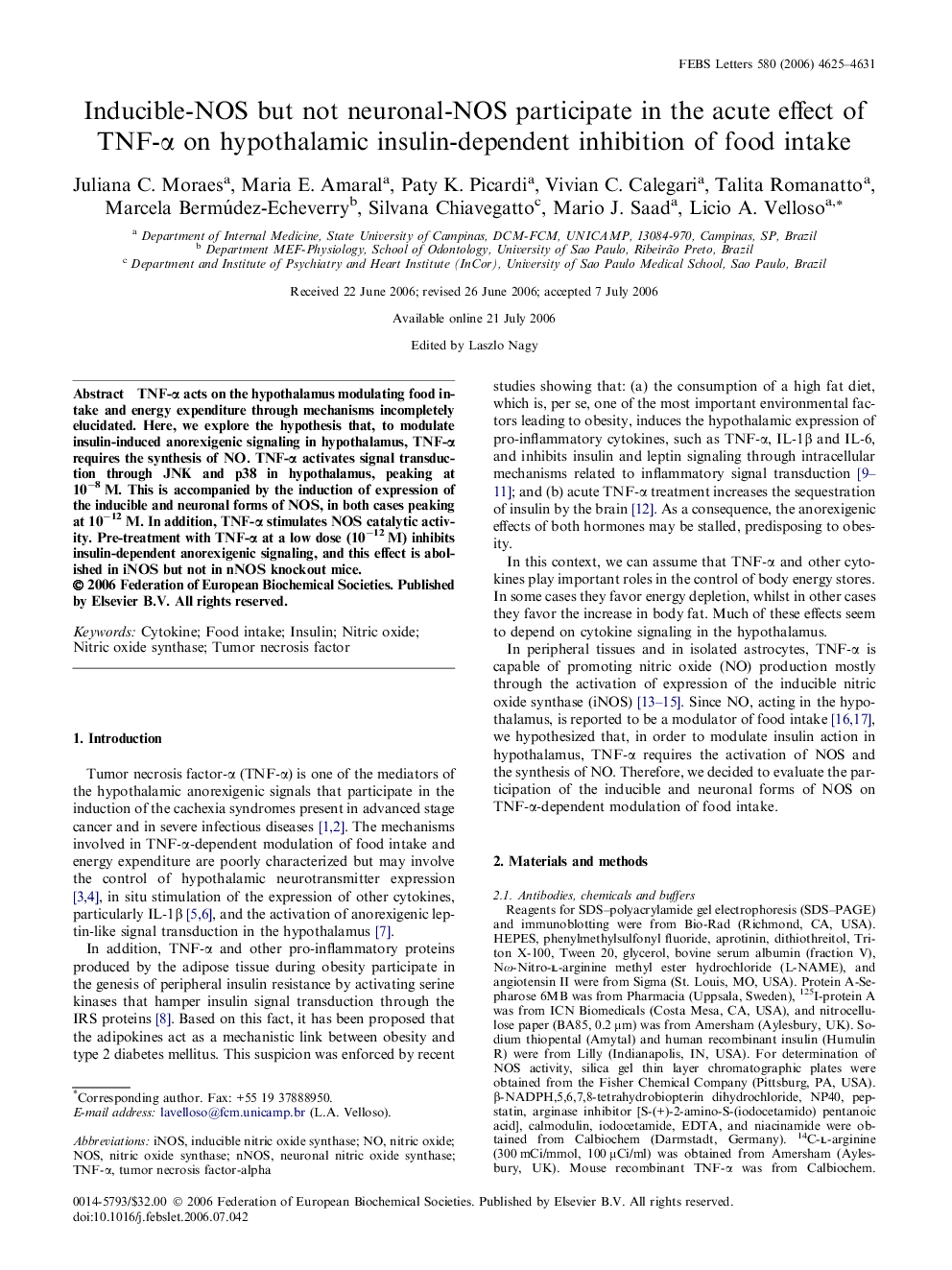| Article ID | Journal | Published Year | Pages | File Type |
|---|---|---|---|---|
| 2051230 | FEBS Letters | 2006 | 7 Pages |
Abstract
TNF-α acts on the hypothalamus modulating food intake and energy expenditure through mechanisms incompletely elucidated. Here, we explore the hypothesis that, to modulate insulin-induced anorexigenic signaling in hypothalamus, TNF-α requires the synthesis of NO. TNF-α activates signal transduction through JNK and p38 in hypothalamus, peaking at 10−8 M. This is accompanied by the induction of expression of the inducible and neuronal forms of NOS, in both cases peaking at 10−12 M. In addition, TNF-α stimulates NOS catalytic activity. Pre-treatment with TNF-α at a low dose (10−12 M) inhibits insulin-dependent anorexigenic signaling, and this effect is abolished in iNOS but not in nNOS knockout mice.
Keywords
Related Topics
Life Sciences
Agricultural and Biological Sciences
Plant Science
Authors
Juliana C. Moraes, Maria E. Amaral, Paty K. Picardi, Vivian C. Calegari, Talita Romanatto, Marcela Bermúdez-Echeverry, Silvana Chiavegatto, Mario J. Saad, Licio A. Velloso,
